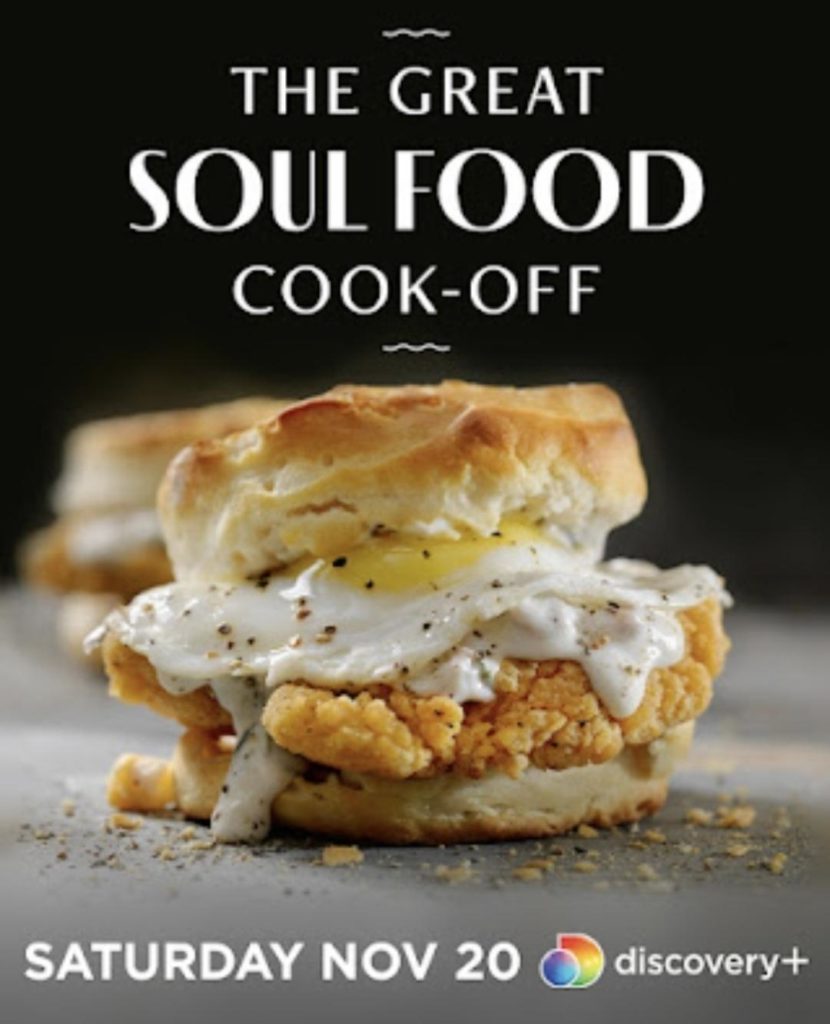
I’m blogging on the, hopefully, inaugural season of The Great Soul Food Cook-Off that currently airs on the Discovery+ streaming service. Remember, to view this competition show, you have to subscribe. New episodes become available every Saturday during the six-week run of the show. In case you missed it, here’s the first blog post that I wrote about this show.
I mention that this is “sort of” a recap because I’m not going to reveal who wins challenges and who gets eliminated. Why? Because I WANT YOU TO WATCH THE SHOW. What I will do is describe the dishes cooked and provide some context where needed. There’s only so much time on a television show and they can’t get in-depth on a lot of things. The contestants are:
The show’s format is to begin by introducing the host (Kardea Brown of The Food Network), and the two regular judges: World-Class Chef Eric Adjepong, and Soul Food superstar Melba Wilson of Melba’s Restaurant in Harlem, New York. Each week there’s a guest judge. For Episode 1, the guest judge is restaurateur and cookbook author Tanya Holland. James Beard Foundation Award-winner and culinary historian Michael Twitty is a consulting producer for the series.

The chefs participated in a non-elimination competition called:
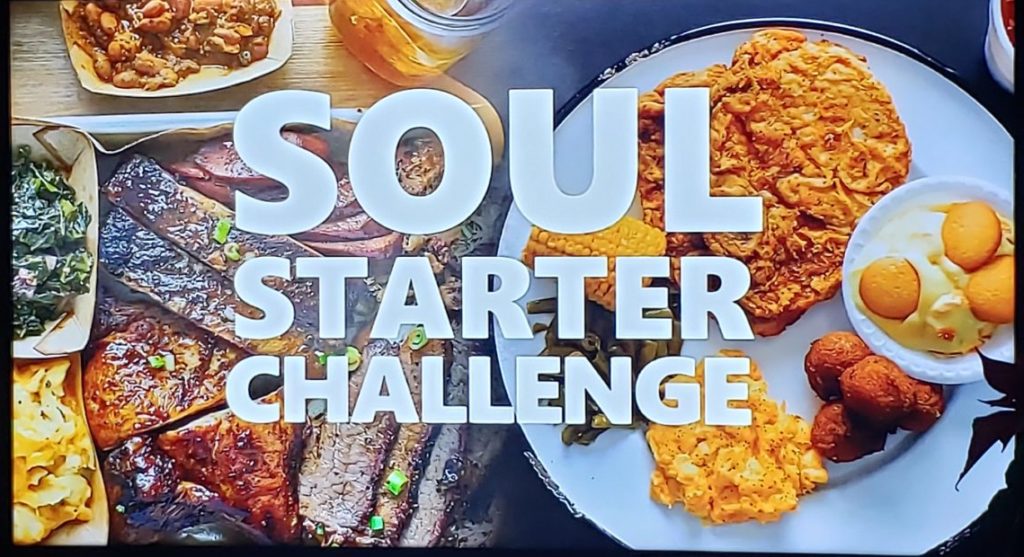
Brown informs the contestants: “Over the next six weeks, you’ll be tasked with taking culinary history of our beloved ancestors and infusing it with your personal style.” What’s at stake? $50,000! Chef Fred captures the right vibe when he said: “Finally, soul food gets its own show. This food is from within. It’s about love, we’re going to put some elbow grease in it, we’re going to put some foot in there, and I’m excited to be a part of it.”
This week, the chefs had to create a “meat and three” meal. The show is sometimes punctuated with historical tidbits and explanations of things that may be unfamiliar to the audience. As Brown explains, a meat and three is Nashville tradition born in the early 1900s that “began with laborers would fix a plate with meat and three sides.” For more history on meat and threes, check out this article from Eater.com.
The chefs were divided into two teams of four, and each chef was responsible for a specific part of the meal. Standard soul food items were on the menu: pork chops (for the meat), collard greens, macaroni and cheese, and potato salad. Each chef had 30 minutes to make their dish.
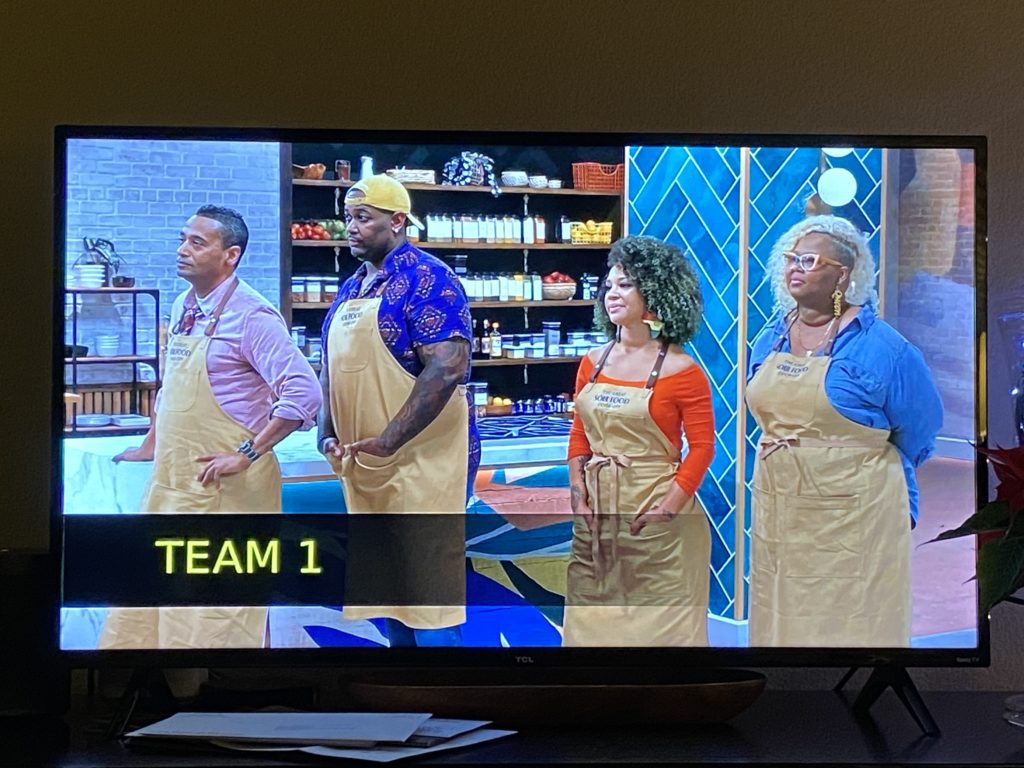
Team 1 included Chefs Chris,
Jamarius, Shac, and Tirzah.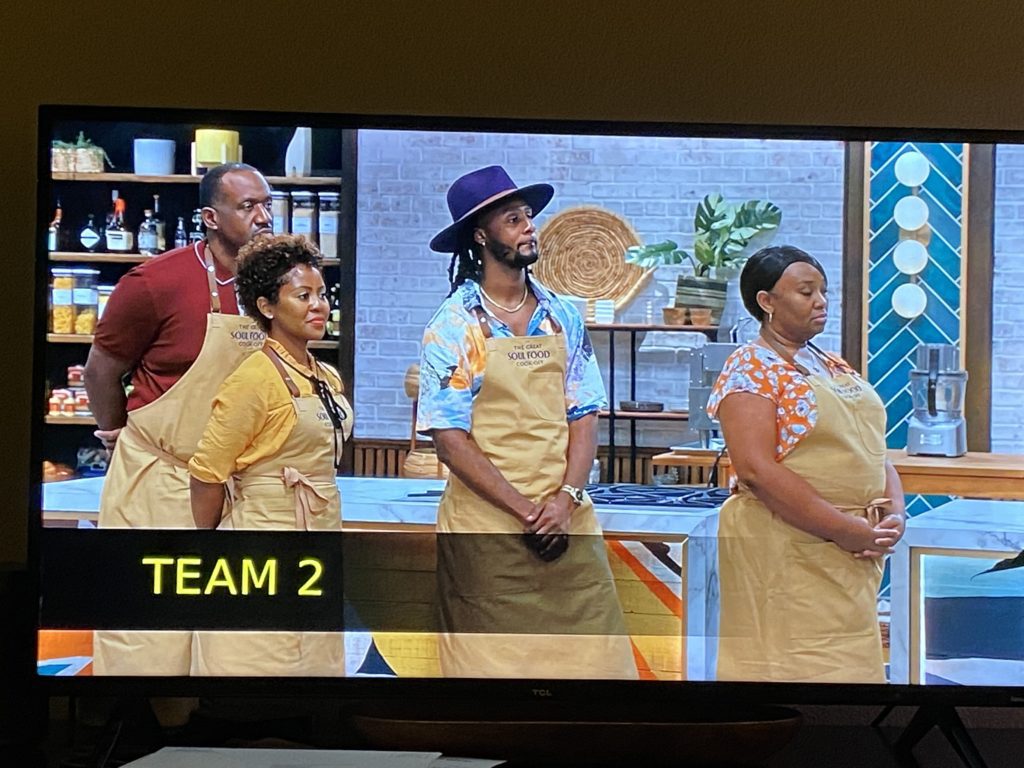
Team 2 included Chefs Dorian,
Fred, Jermaine, and Razia.
When it came to judging, chefs were paired based on the dishes they were assigned. Here’s what they made:
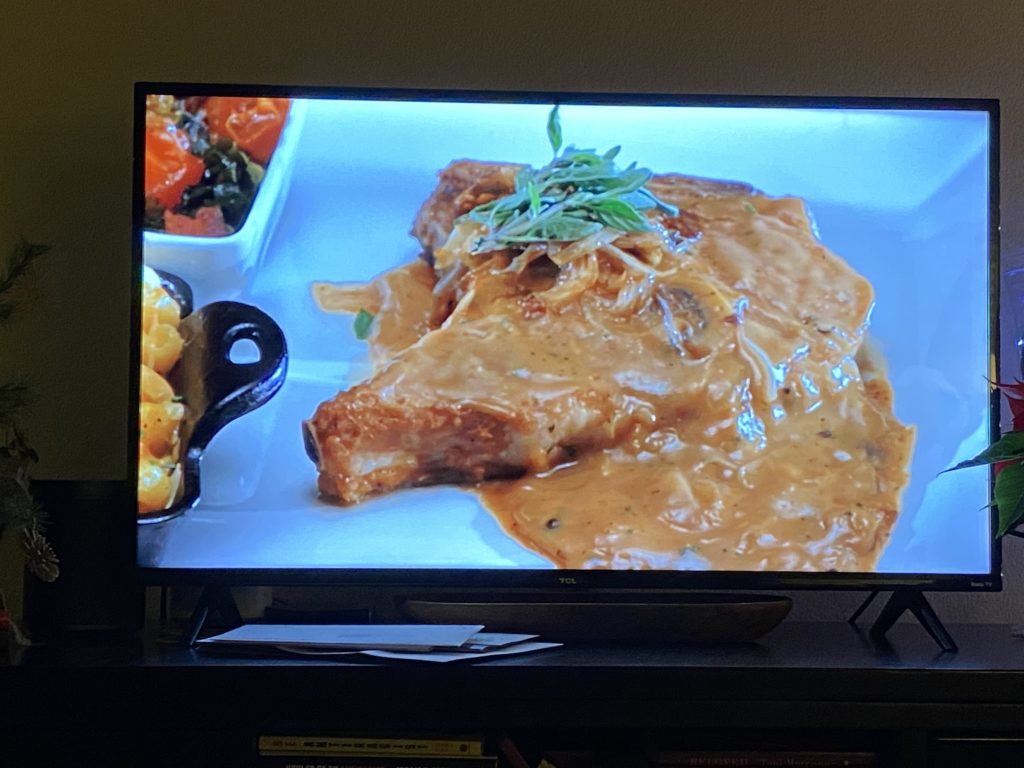
Chef Chris smothered pork chop 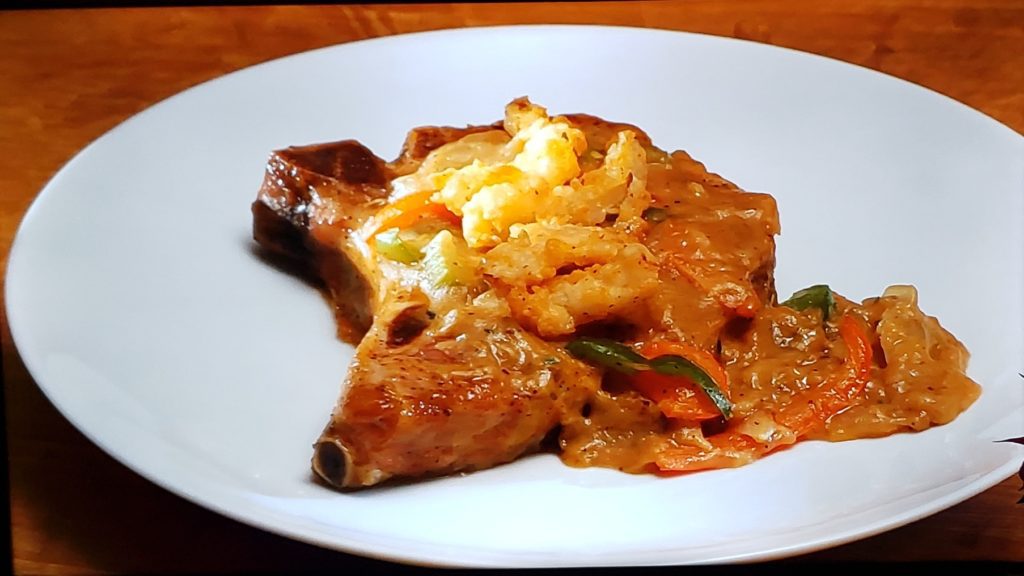
Chef Jermaine’s smothered pork chop
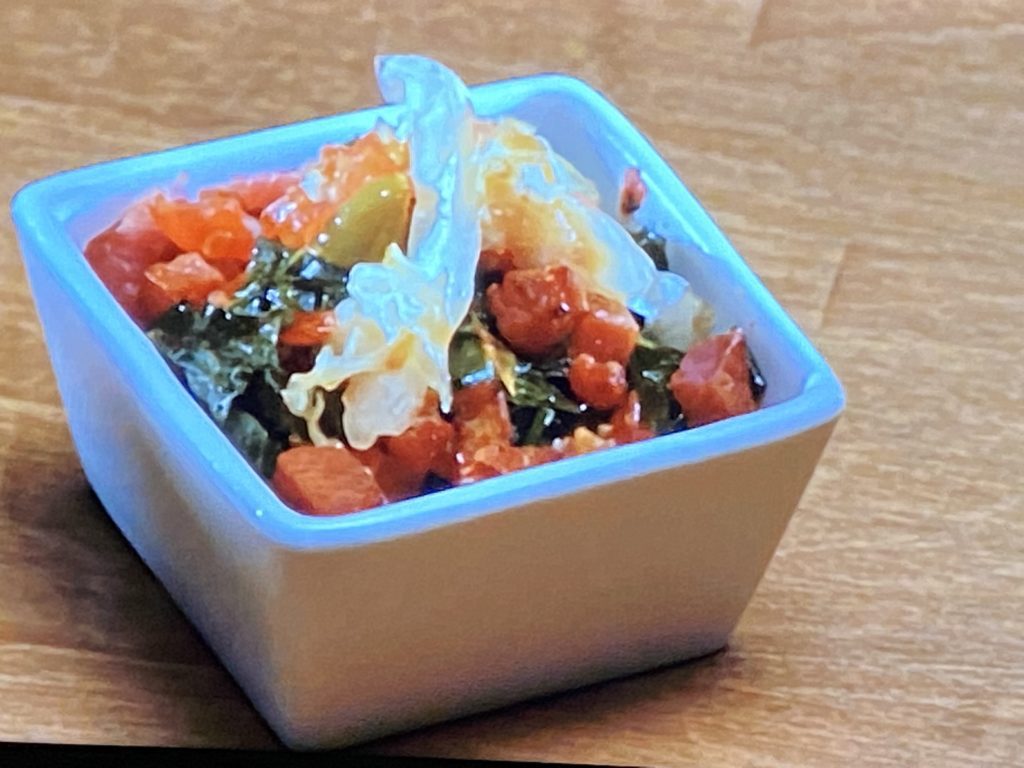
Chef Dorian’s greens topped with chow chow. 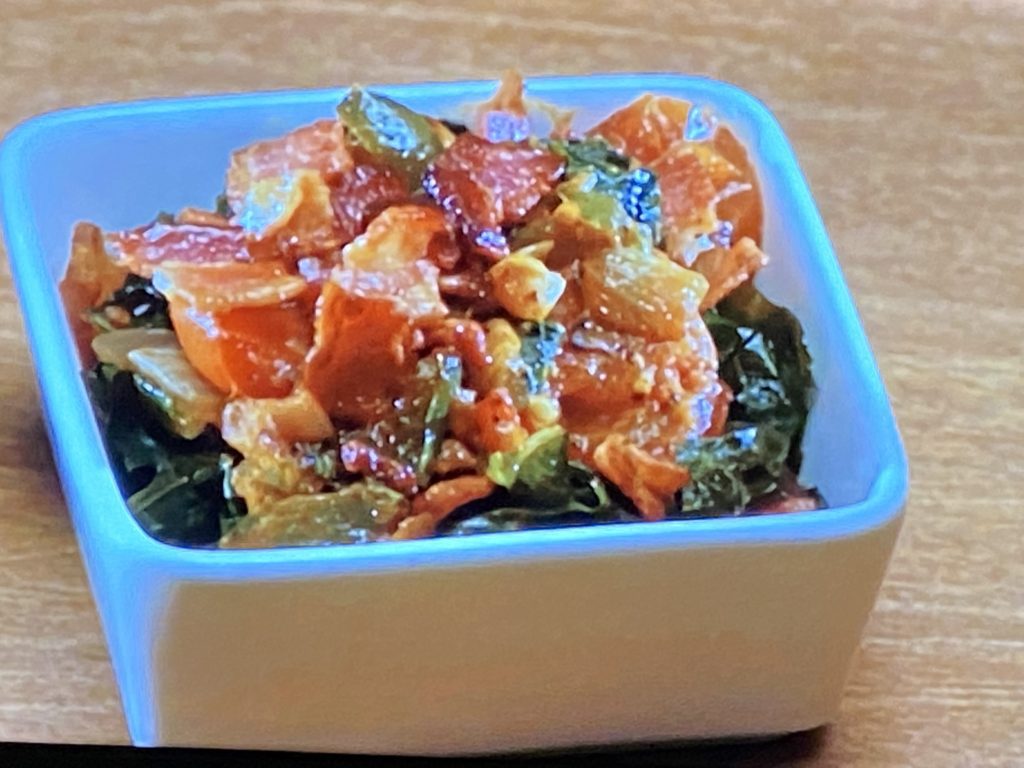
Chef Shac’s sauteed collard greens
with blistered tomatoes.
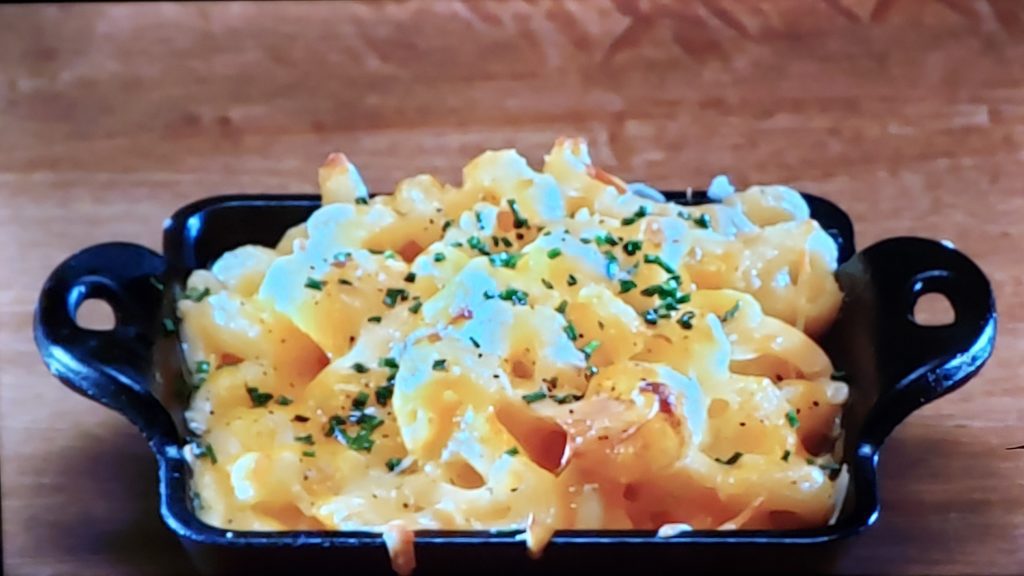
Chef Jamarius’s four cheese
macaroni and cheese.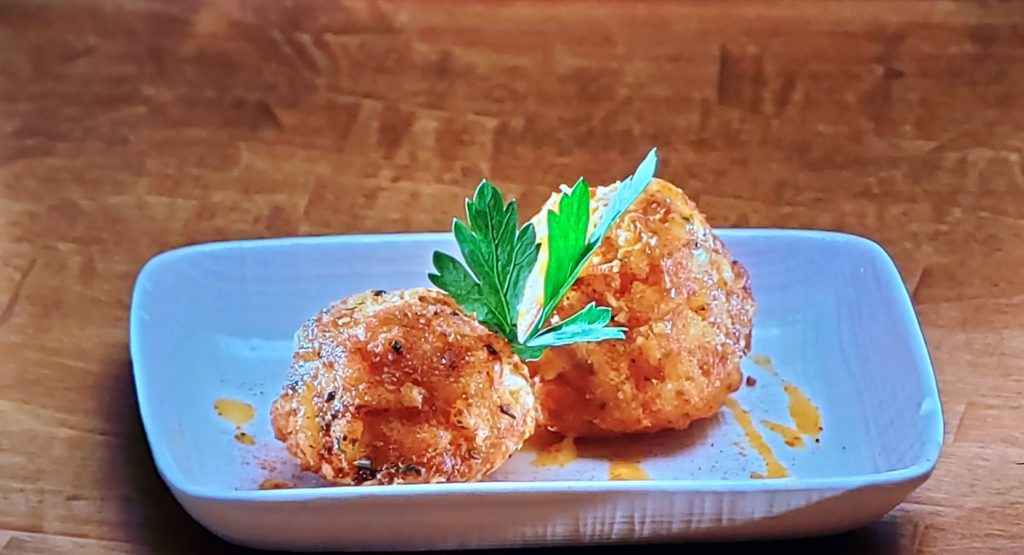
Chef Fred’s macaroni and cheese fritters.
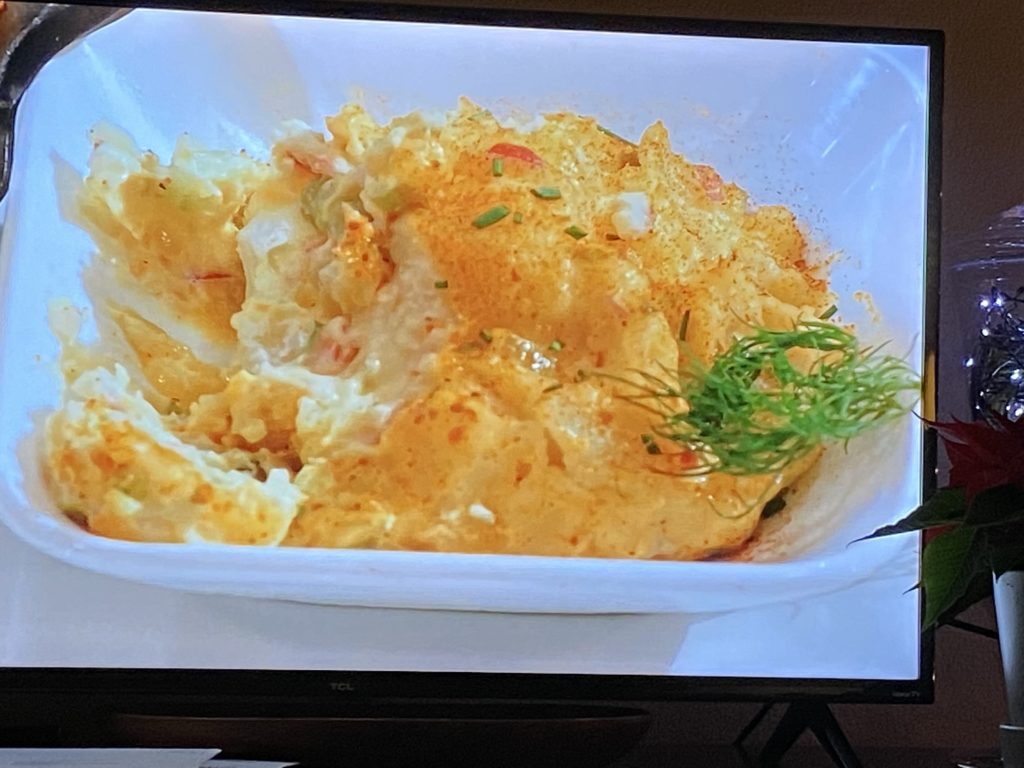
Chef Tirzah’s potato salad (with an egg in it!) 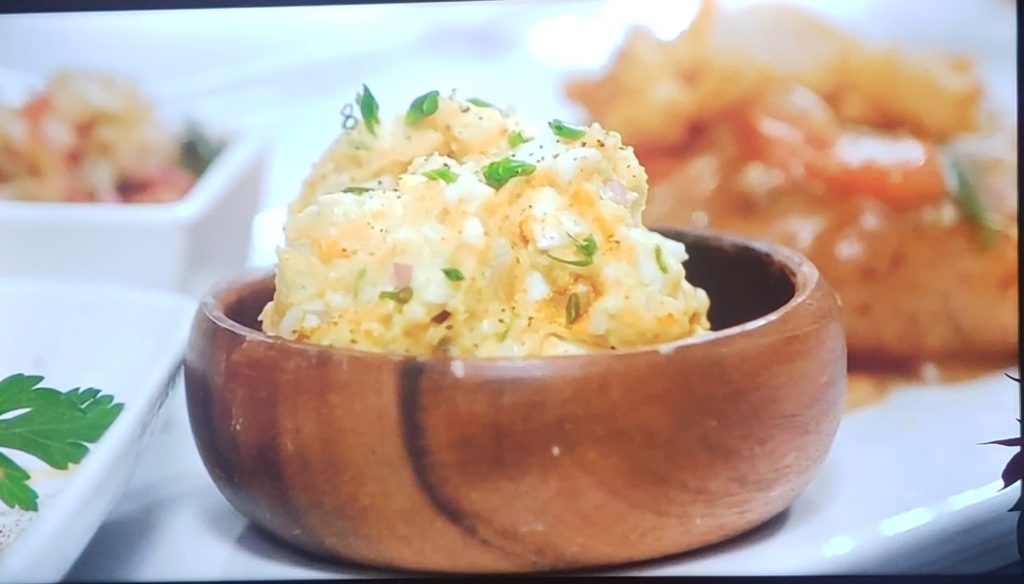
Chef Razia’s potato salad.
The next challenge, and main competition, is called:
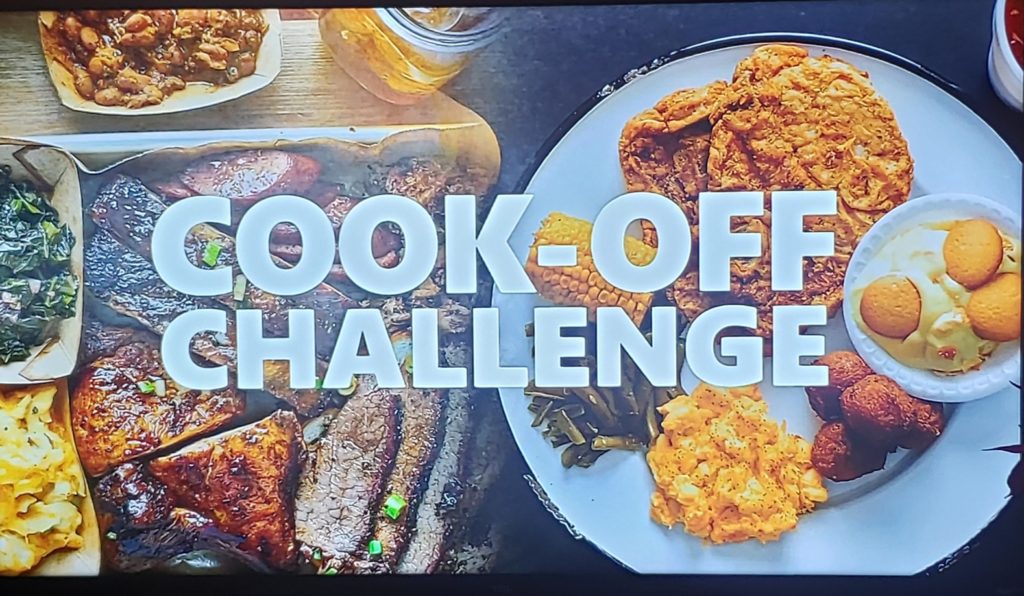
This week, the chefs had to prepare a dish using the “roots of soul food.” The key ingredients were black-eyed peas, cabbage, corn, okra, peanuts, rice, sweet potatoes, and turnips (with greens). Here’s what they made:
Chef Chris: Turnip Dumplings with Turnip & Peanut Pot Liquor
Chef Dorian: Deconstructed Peanut Butter & Jelly Pie
Chef Fred: Pan-seared Salmon with Curried Cabbage
Chef Jamarius: Smoked Black-Eyed Pea Hummus
Chef Jermaine: Sweet Potato Soul Toast
Chef Razia: Jalapeno Cheddar Hoe Cakes with Corn Relish
Chef Shac: White Gumbo with Charred Okra
Chef Tirzah: Classic Jambalaya
Some very interesting approaches! Again, tune in to see who wins!
My soulful thoughts:
The show is off to a good start! The chefs selected are interesting, the judges give spot-on critiques, and the show has high production values. At this point, the show assumes viewers have a basic understanding of what soul food, but I don’t think that’s a safe assumption. In my experience, a lot of people don’t know what soul food is, or they’ve been misinformed. The show can provide a lot of teaching moments, but it does so infrequently. One example is giving a more precise definition of “soul food.” Another opportunity happened during the “Cook-Off Challenge” round when the chefs used ingredients that exemplified the “the roots of soul food.” It would have been cool to give more culinary, historical, or social context as to why those particular ingredients were selected. What came from West Africa? Did enslaved African Americans cultivate them? These are just a couple of questions that could be explored in interesting ways.
The competition also highlights some of the tensions currently at play within the cuisine, namely traditional preparations versus innovative approaches. So far, the judges haven’t favored one approach over the other.
The dishes I most wanted to eat:
Chef Tirzah’s potato salad and Chef Shac’s white gumbo.
So far, the show is mainly promoted on YouTube. Please share this recap to help spread the word!
Should you need more enticing, here’s the official Discovery+ preview for Episode 1.
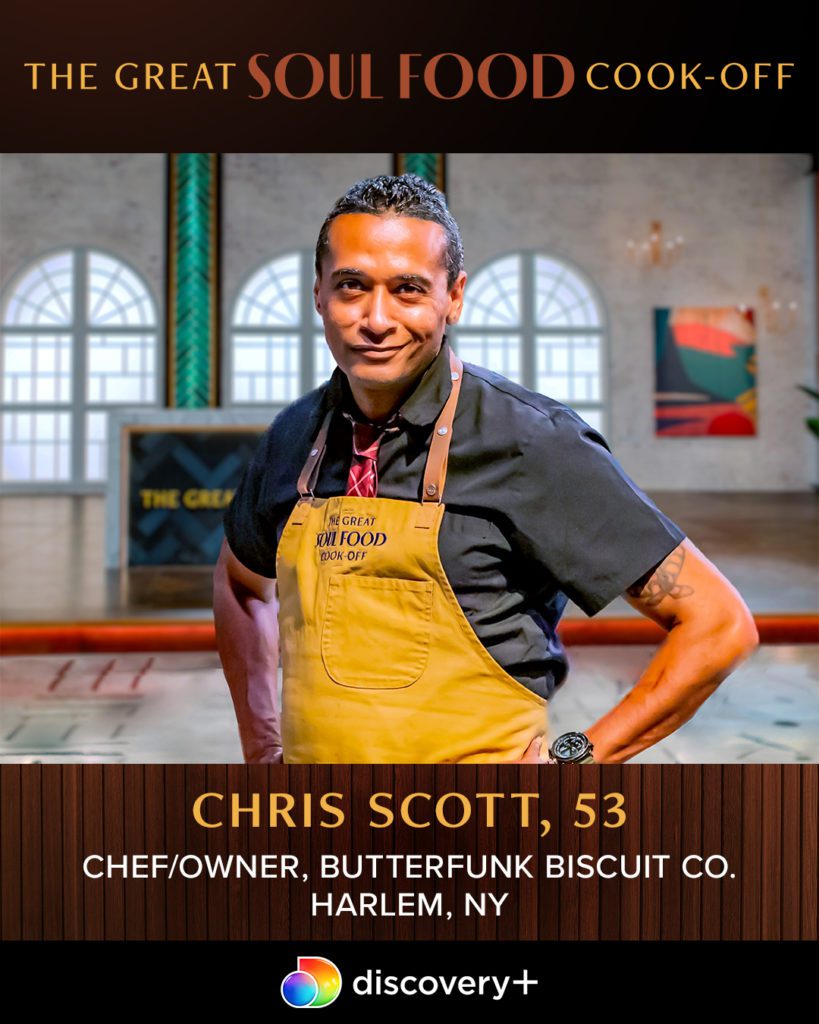
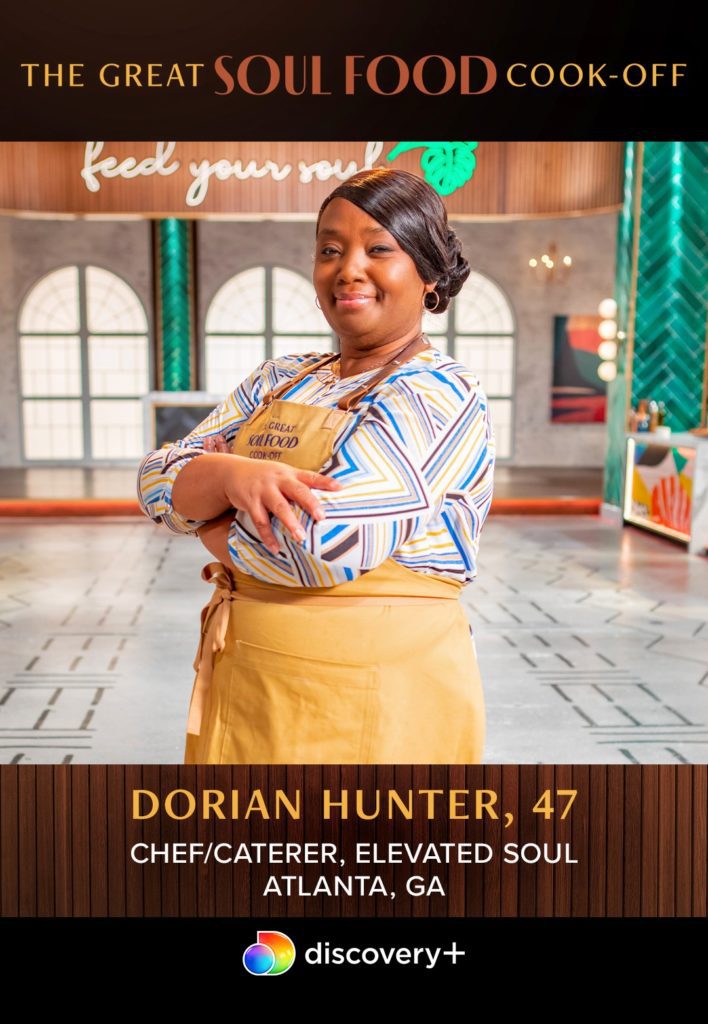


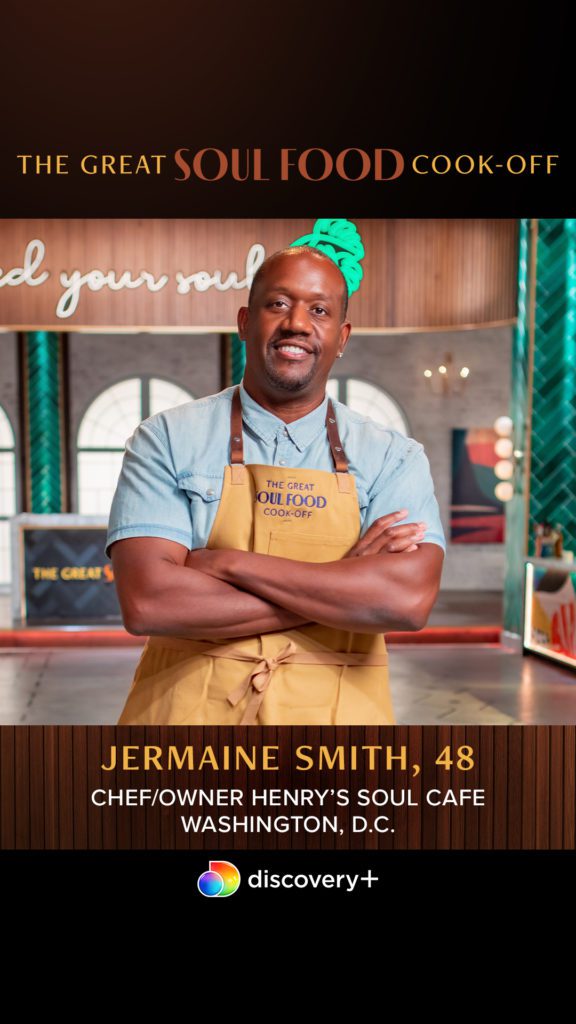
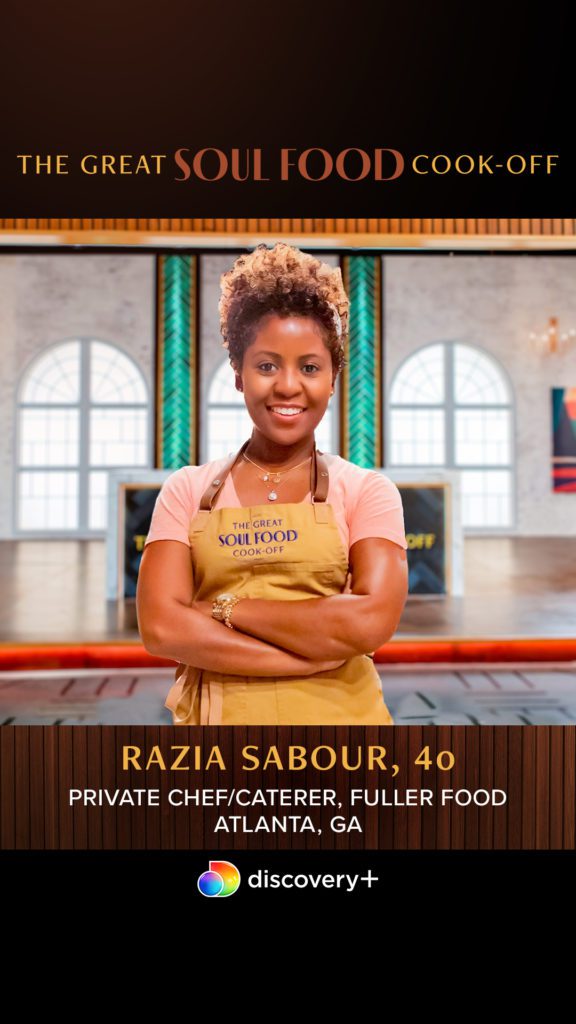
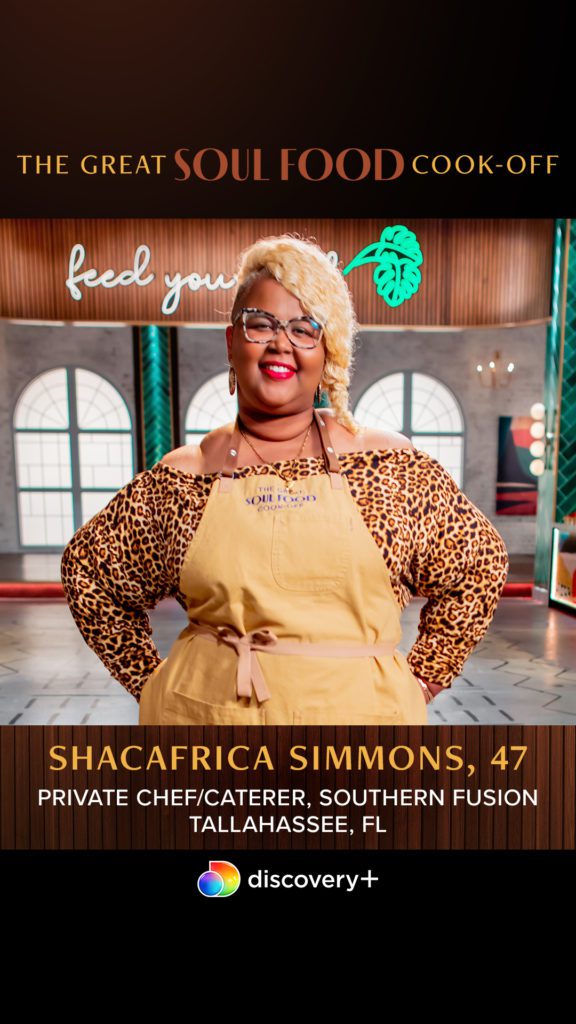
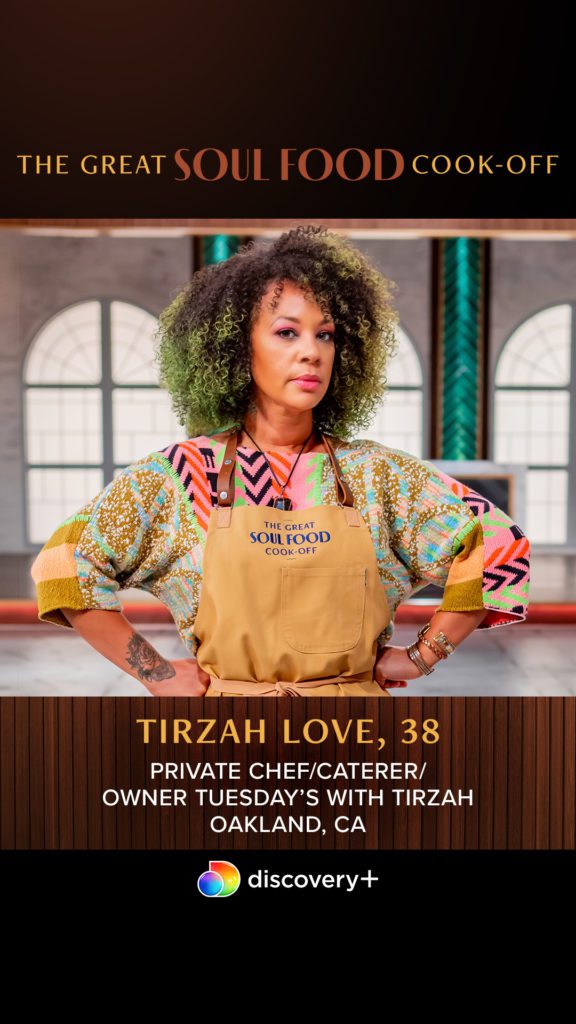

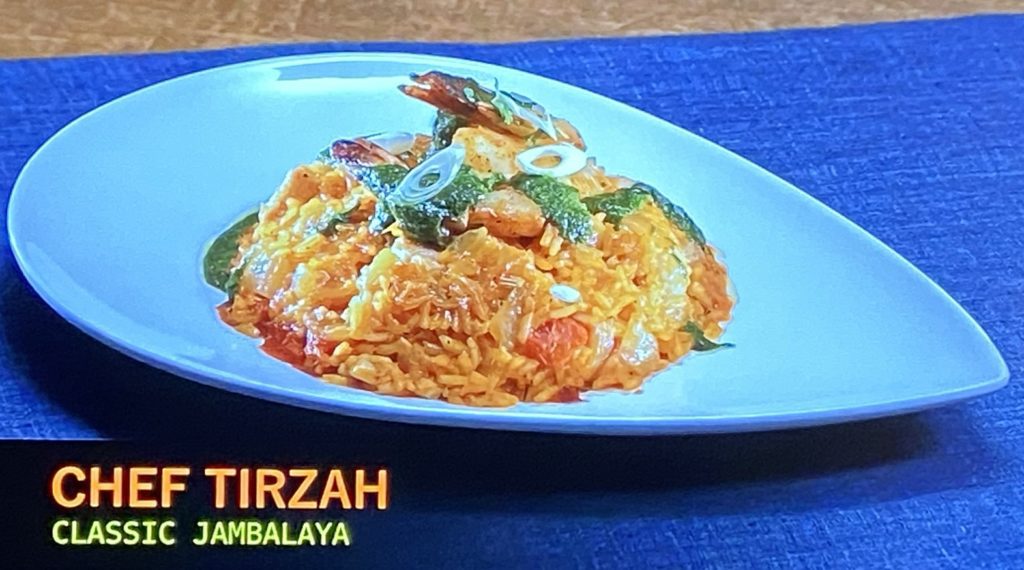


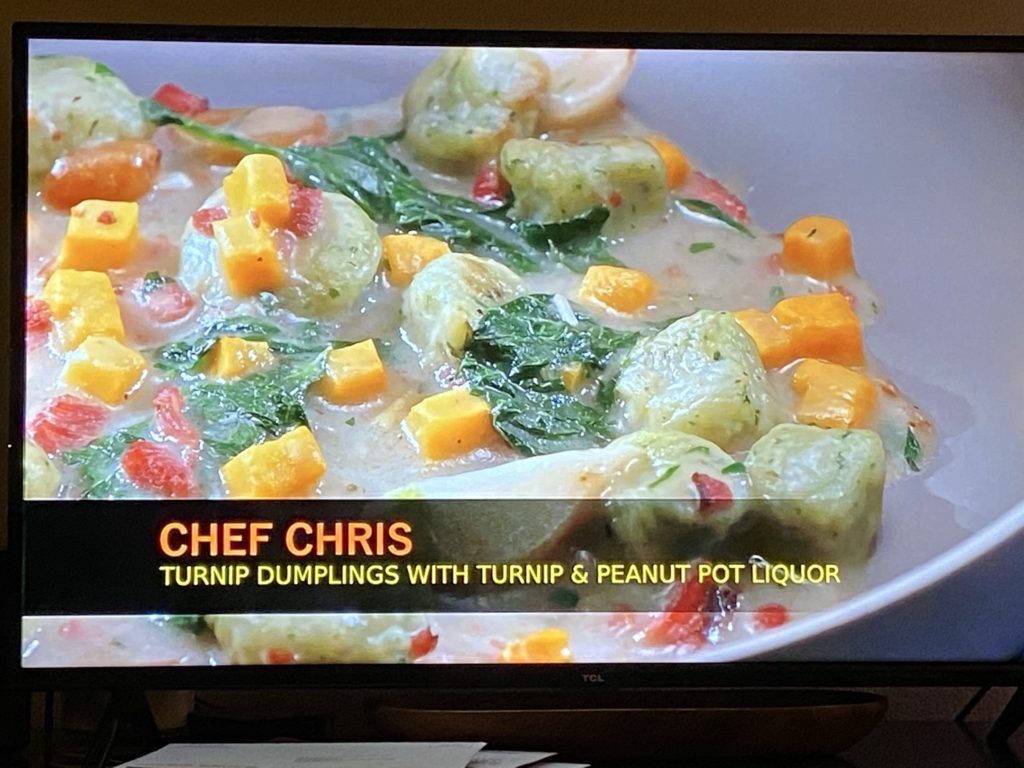

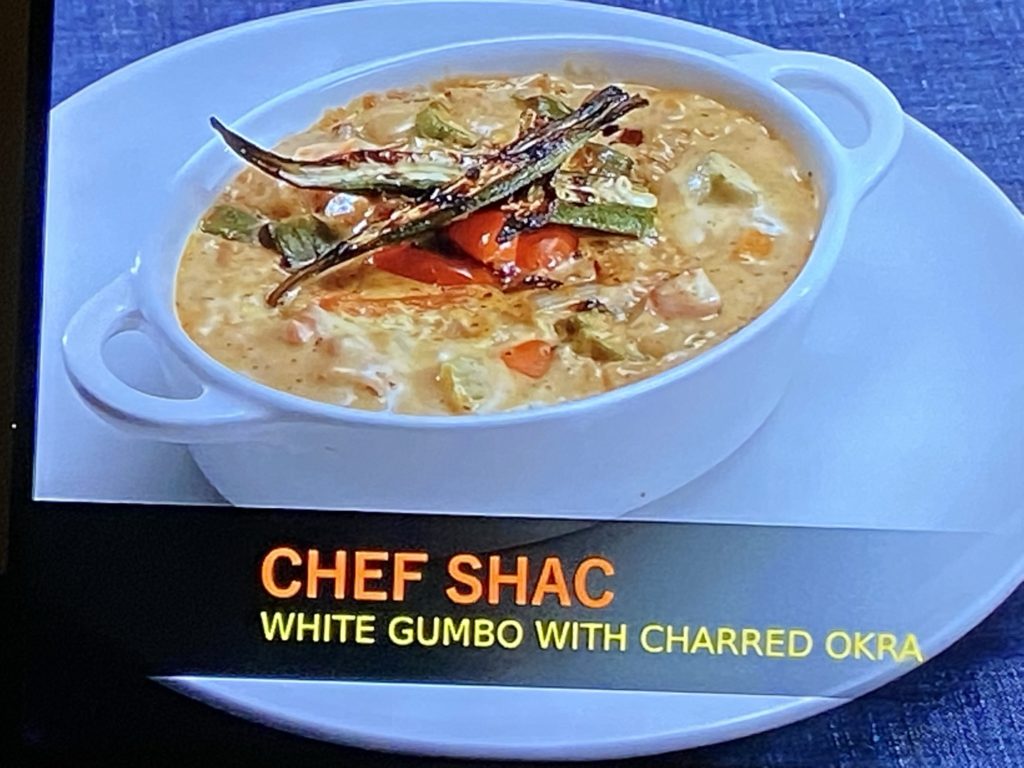

How do you get the recipes?
Hello! I’m sooo sorry that I’m just noticing this. I don’t have any access to recipes, and I never saw anything shared by the network.
I didn’t know this was airing. Needed more advertising
I definitely agree!
Good evening, I’ve watched this show o er and over and over sometimes 3 times a day I don’t care what anybody says. I know chef Dorian, should have won. She won more than anyone. Barely messed up a dish and look like it was a set up when she cooked the risotto, yall was finding a way to cut her. I notice raz came from MO ey, ni one can’t tell me that lady was paid to win. Cause she messed up, fumble, burnt food since she stepped in the kitchen, she even dropped a whole pie on the floor and yall let her slide. Yall got paid. Dorian, keep your head up. But I would never go back on that show and cook. Anybody that should have been in the winning bracket was Dorian or Chris. Paid paid paid for raz to win.an under the table job.
Why was the Great Soul Food Cook Off only on one episode in 2021. I loved that competition, it was great. It should be on every year. There are no Soul food shows on like this.
Agreed! I was surprised that wasn’t a second season.